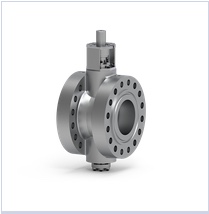15-06-2023
Enhancing SCR performance by revolutionising renewable fuel yields
Recognising selective catalytic reduction helps prevent the negative impact on production rates, catalyst lifespan and compliance with EPA standards. In the pursuit of clean and sustainable energy solutions, the energy industry is constantly striving to develop more efficient methods to generate renewable fuels. Integrated Global Services (IGS) has played a pivotal role in this endeavor, partnering with a facility that runs a Steam Methane Reformer (SMR) – a prevalent unit in the petrochemical industry – on the United States West Coast. The plant was struggling with inadequate Selective Catalytic Reduction (SCR) performance, severely hampering its ability to comply with NOx emission regulations, and significantly reducing production rates.
The facility experienced a range of issues, including high system pressure drops, insufficient ammonia mixing, and poor NOx removal. These challenges were primarily attributed to SCR fouling, a widespread problem affecting ageing plants across the nation. SCR fouling occurs when fibrous particles obstruct the SCR catalyst, impeding flow and causing pressure drops. If left unaddressed, the problem worsens over time, impacting production rates, catalyst lifespan, and compliance with Environmental Protection Agency (EPA) standards.
It is crucial to recognise that SCR fouling is not a matter of ‘if’ but ‘when’, as all refractory materials degrade over time. Failure to mitigate SCR fouling leads to reduced production rates, increased NOx emissions, ammonia slip, and unplanned outages, resulting in significant financial and operational burdens for plants. SCR performance levels can plummet by up to 50% in many cases, coupled with catalyst lifespan reductions and potential violations of EPA emissions standards. Clearly, SCR fouling is a serious concern that demands proactive measures by plants.
IGS tackled the challenges faced by the West Coast methane reformer plant by implementing a comprehensive suite of solutions, including online cleaning systems, fine particle filtration screens, and ammonia mixing systems. Instead of relying on a single solution, IGS employed a multi-faceted approach that effectively resolved the plant’s issues. This approach proved to be a game-changer, as it saved the facility from more than $1 million per day in losses due to unplanned outages and operational derates.
The remarkable results achieved through IGS’ cleaning systems demonstrated a significant reduction in SCR fouling and a noteworthy decrease in NOx emissions.
As market demands and environmental restrictions continue to evolve, IGS has solidified its position as an industry leader in optimising and enhancing SCR performance. By leveraging advanced technologies and innovative strategies, IGS empowers plants to produce renewable fuels efficiently while meeting stringent regulatory requirements.
Sponsor:
News Category:
-
IGS acquires thermal spray business from Liquidmetal Industrial Solutions
Integrated Global Services, Inc. (IGS), a leading provider of proprietary asset integrity and environmental and efficiency technologies, is pleased to announce the acquisition ...
28-10-2024
-
Integrated Global Services wins at Gulf Energy Information 2024 excellence awards
Integrated Global Services has been announced as a winner in the 2024 Gulf Energy Information Excellence Awards, held on Wednesday evening at the Post Oak Hotel in Houston, ...
11-10-2024
-
IGS scores perfect 100 in energy giant's field verification report
Integrated Global Services, a leading provider of on-site surface protection solutions, has achieved an unprecedented score of 100 out of 100 in a recent Field Verification ...
02-10-2024
-
IGS named finalist in Gulf Energy Excellence Awards for robotic heater cleaning technology
Integrated Global Services (IGS), a leader in industrial surface protection solutions, has been announced as a finalist for the prestigious Gulf Energy Excellence Awards ...
15-08-2024
-
Integrated Global Services sees doubling of pipeline growth and eyes exponential growth
Rich Crawford, CEO and President of Integrated Global Services (IGS) is confident in the company's growth prospects driven by strategic acquisitions, a strong business ...
22-05-2024
-
Tube Tech wins international safety award
IGS Tube Tech has won an International Safety Award from the British Safety Council in recognition of its commitment to keeping its workers and workplaces healthy and ...
11-04-2024
-
ADM names Integrated Global Services as a 2023 supplier award winner
Integrated Global Services Inc, has been named a 2023 Supplier Award winner by ADM, a global leader in sustainability sourced solutions from nature. ADM honored seven ...
20-03-2024
-
Tube Tech unveils most advanced convection section automated rover system to date
Tube Tech, the leader in premium cleaning and inspection solutions for oil and gas, petrochemical and agrochemical plants, has launched its next generation Mark 7 fired ...
07-02-2024
-
IGS releases inaugural environmental, social and governance (ESG) report
IGS today published its first Environmental, Social, and Governance (ESG) report. The report outlines the company’s ESG commitments and the environmental and social ...
26-07-2023
-
IGS recognised as top performer in work efficiency analysis
IGS emerges as a top performer with high contractor efficiency for the 2022 TAR project with an efficiency rating of 80% within the industry. A multinational oil and ...
16-06-2023

















